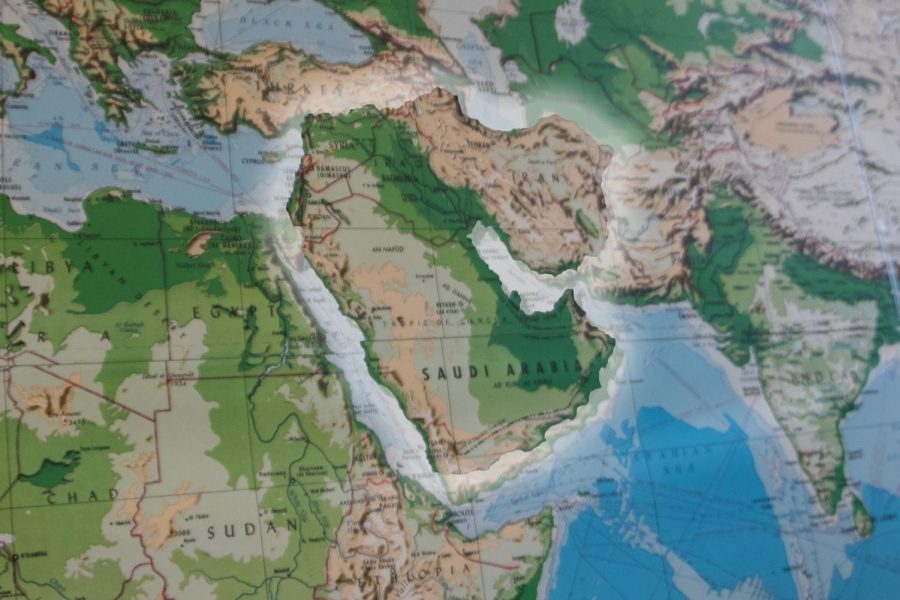Many Middle Easterners Don’t Identify As White
Many Middle Eastern people have differing opinions on their racial identity.
March 30, 2022
I was at my doctor’s office for an appointment four weeks ago, and I was asked to check a box for my race. My options were “White,” “Black or African American,” “Asian American,” “American Indian/Alaska Native,” “Native Hawaiian/Pacific Islander,” or “Other,” since they were formed based on the U.S. census. This census, which is conducted every ten years, has a very limited variety of options for identifying one’s race.
This left me to contemplate my options. Geographically, I might be considered Asian because I am Middle Eastern, but I do not feel that that accurately captures my ethnicity. I could check the box for “Other,” but that just makes me feel excluded since no one had the time to write down my race. No one thought of accounting for my heritage.
So that left me with one option: white.
I hesitated before scribbling in the little box next to the word “white.” But I did it anyway.
It made me feel like my culture was just gone.
I didn’t feel recognized. I don’t want to be portrayed like that on paper.
According to the National Museum of African American History and Culture, the term “race” was hardly used prior to the 1500s and “was used to identify groups of people with a kinship or group connection.”
Race is a social construct developed by humans to categorize people and create stereotypes, whether that’s intentional or not. During the 1500s-1600s, race was invented to primarily put a few ethnic groups into a higher category as a result of imperialism.
Today, “race” is defined as “identifying groups of people by physical traits, appearance, or characteristics.” Many people assume people’s race based solely on skin color as well.
Imperialist powers have used the ideas of whiteness to exert social control over other groups. The expansion of the word white causes people who are considered “white” to be subject to the same standards and stereotypes.
The concept of whiteness and who the term “white” refers to continues to expand. Over the past few centuries, more and more people have had their racial identity changed to be white. This means that humans have extended the definition of “white” to include more people, which changes many people’s racial identities.
Continuing to expand the definition of white can be harmful because it is used as a rhetorical technique to preserve concepts of white supremacy. Continuing to expand the definition of whiteness just allows the idea of domination that comes with white supremacy to prevail. According to Merriam-Webster, white supremacy is “the belief that the white race is inherently superior to other races and that white people should have control over people of other races.” Expanding the definition of whiteness allows white people to dominate society because as the number of people the term “white” accounts for continues to rapidly grow, the white people will outnumber any other race by far, thus being capable of dominating society.
A Middle Eastern person is not white, but rather, there is a social pressure put on them to force them into the ever-growing box of whiteness.
Whiteness is such a broad term, and as the definition of white continues to expand and account for more people, even accounting for people who are not Europeans, the potential danger it imposes on the world becomes more dire because it continues to contribute to white supremacy.
Whiteness refers primarily to Europeans, calling a Middle Eastern person white can make them feel like their culture is less prevalent, known, or important. It can also be extremely offensive or hurtful to tell a Middle Eastern person that they are white because they have a culture that white simply does not account for.
There should be an option for MENA (Middle East and North Africa) or SWANA (South West Asia and North Africa). That way, I do not have to define my race as “Other,” and I would feel that my racial identity was accurately represented because right now, I don’t feel that I fit into any category on the U.S. census.
I am proud of my culture. I am proud to be a Lebanese woman. But I feel like the U.S. census is trying to hide me. Even after the MENA and SWANA movements, the lack of specific representation for my community has not been addressed.
It takes away my identity when someone calls me white. It strips me of my Middle Eastern heritage and erases my culture.
Race is a combination of physical, biological, and cultural factors, while ethnicity is based mostly on culture and tradition.
Race and ethnicity are two starkly different concepts, but both have been socially influenced by humans. This is because race is a classification system invented by humans, and ethnicity has been socially influenced by humans as well but is more about language, tradition, and culture.
To say “White” implies that someone is of European descent. According to Cambridge Dictionary, to be white means that one’s family originally came from Europe.
I grew up in a Phoenician household, where many people in my life had a different culture from my peers because my family’s culture was not yet as Americanized as my American friends’ cultures. My mother and grandparents immigrated from the Middle East to America. I grew up with Arabic spoken around me and an aroma of cultural foods wafting in the air of my house.
Yes — racially, I may appear white, but I feel that calling me “white” takes away from my ethnic background. Ethnically, I am not white because I am not European, and my family is actually from a country in southwest Asia called Lebanon.
Many people of Middle Eastern descent feel similarly to me in this aspect. While the U.S. census considers MENA people to be white, a study has shown that most people of MENA descent do not consider themselves white.
At a young age, I had developed a group of friends that was predominantly white. I used to visit their houses quite often to stay the night.
I often experienced culture shock in situations like this. The feeling of disorientation came from the more Americanized environments of their homes. I knew that my home was different from theirs. That’s not a bad thing; they’re just different environments.
This is not to say that all American households are the same, but there is a distinct difference in my culture.
Even if a person “looks white,” it is important to educate yourself first and not assume their ethnicity or race. It is also important to respect people and refer to them by their racial and ethnic identity, regardless of whether or not you disagree with that.
I am not white.
I am Middle Eastern.





